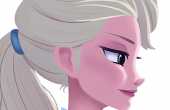Mya Colwell
Lover of stories: the creepy, the strange, the magical. Aspiring editor and avid jazz listener (but not in a snobby way).
Junior Contributor II
- Sharp-Eyed Citizen
- ?
- Articles
1 - Featured
1 - Comments
7
- Ext. Comments
3 - Processed
2 - Revisions
2
- Topics
1 - Topics Taken
0 - Notes
2
- Topics Proc.
2 - Topics Rev.
0
- Points
203 - Rank
X - Score
94
Latest Articles
Latest Topics
Published | YA Book Series That Never EndI'm sure most of us have all read a series, especially a YA series, that just never seems to end. I'm thinking about Cassandra Clare's Mortal Instruments series, Sarah J. Maas' Throne of Glass series… These series start innocently enough, with a good idea, and soon they gain a loyal following of readers. But once a series is officially considered a success, the prequels start streaming in, and the novellas, and the spin-off series, and the short stories. While fans can't wait to read new content featuring their favourite characters, this has always left me feeling a little uneasy. Why can't the authors let a series end? Is this just lazy writing? Are the authors monopolizing on the loyalty of their fans to make a buck? Is this just glorified fan fiction? On the other hand, maybe it is a positive thing that a series can continue to churn our new content. Maybe that is the mark of a successful idea. The author of the article could decide if a series that never ends is a positive attribute, a negative one, or something in between.
|
Latest Comments
| Frozen: Letting Go of Gender Stereotypes? | |
Yes, it’s an encouraging step. Thanks! | Frozen: Letting Go of Gender Stereotypes? |
Yes! Good point. It’s accessible while still trying to curb stereotypes | Frozen: Letting Go of Gender Stereotypes? |
Yes, there were so many times when Anna was rescued (and unnecessarily rescued too) | Frozen: Letting Go of Gender Stereotypes? |
The Handmaid’s Tale is such a powerful piece of literature. I first read it in my grade 12 English class and remember feeling so horrified, especially since everything in the novel has occurred in real world events at some point or another. But I think that it is important to feel that horror, otherwise the hope that comes later in the book can be overlooked. This was a very thought provoking essay. | A Life Measured: The Parasitic Nature Of Capitalist Dystopia |
This was such a great introduction to Indian Folk-art! I found it interesting to learn about the preparation of the canvases in Pattachitra Paintings. | Indian Folk-art: An Expression of Cultural Diversity |
Great article! It was interesting to see the different perspectives there are around Scully’s character. | The X-Files: A Feminist’s Analysis of Gender Imbalance |

Good point. I think Frozen II did a better job of just letting the stories speak for themselves and relying far less on stereotypes.